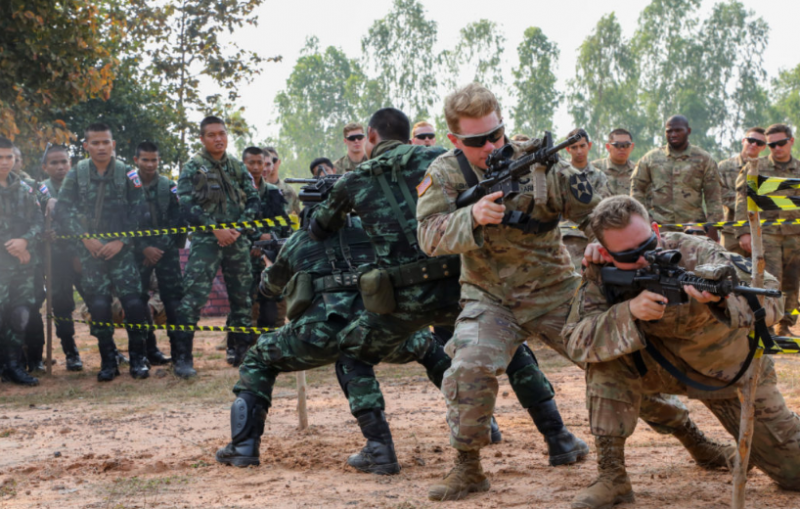
China: Despite rising Sino-US tensions, China's military ties with Thailand, a US treaty ally, continue to strengthen with joint exercises and arms sales.
At the Udorn Royal Thai Air Force Base in northern Thailand, Chinese and Thai air forces began an 11-day Falcon Strike 2022 exercise on Sunday. It was revived last week after a US$380 million deal to buy the Chinese-built S26T Yuan-class submarine for the Royal Thai Navy.
In response to US House of Representatives Speaker Nancy Pelosi's visit to Taiwan this month, China cut military communication lines with the US. In response to Pelosi's visit, the People's Liberation Army conducted extensive live-fire exercises across the island and began a new exercise on Monday after another US congressional delegation flew to Taipei.
In June, US Defense Secretary Lloyd Austin visited Thailand as part of an initiative to strengthen the "unique network of alliances and partnerships" in the region.
However, China recently overtook the US as Thailand's top arms supplier, giving the country's ruling military junta everything from a VT-4 main battle tank to a Type 071E amphibious dock ship.
Because the Americans rejected the junta government and the coup that established it in 2014, Bangkok strengthened its military ties with Beijing, according to Zhang Mingliang, a professor of Southeast Asian studies at Jinan University in Guangzhou.
However, he added, "I am not overly optimistic about China-Thailand relations because there is a clear pattern in Thailand's foreign policy that it is always full of ups and downs, backs and forths, and twists and turns." Change could be brought about by domestic politics or as a way to strengthen Thailand's negotiating position.
In 2015, the first joint training exercise for the Falcon Strike took place. The PLA Air Force sent J-10C fighter jets, JH-7A fighter-bomber and KJ-500 airborne early warning aircraft for the fifth edition this year, while the Royal Thai Air Force sent Saab JAS 39C/D Gripen fighter jets and Saab . 340 airborne early warning aircraft made in Sweden.
Both the Air Force will practice small- and large-scale troop deployment operations, as well as air support and strikes on ground targets. Some incredibly realistic aerial combat simulations are projected with the aid of aerial early warning aircraft, fighter jets on both sides, active electronically scanned array radar, and advanced air-to-air missiles.
According to a statement by China's Ministry of National Defense, the aim of the exercise was to "deepen practical cooperation" and "enhance mutual trust and friendship between the air forces of the two countries".
In place of the German-built MTU396 diesel engine that was originally specified, the Royal Thai Navy said it could accept an engine made in China for the S26T diesel-electric submarine that it sold to China Shipbuilding and Offshore International Co. (CSOC) if replacement meets specifications.
The Royal Thai Navy will conduct a thorough evaluation by 15 September after receiving specifications for the upgraded version of the CHD620 diesel engine from a Chinese shipbuilder. Vice-Admiral Pokkrong Monthphaelin, a representative for RTN, said on 9 August that the deal could go ahead if the specifications are satisfactory and a sample engine passes additional tests.
However, if the CSOC fails the replacement test, the contract must be terminated, and the two parties will need to negotiate to discuss compensation or a refund, he said. However, if possible, the RTN would prefer to avoid a complete reset of the process.
When Germany's MTU Friedrichshafen announced in April that it would not sell its MTU 396 diesel engine to the state-owned CSOC because of the EU arms embargo on China that has been in place since 1989, the Royal Thai Navy's 13.5 billion baht (US) $380 million) contract with CSOC was almost canceled.
US business group claims that Chinese military exercises around Taiwan had little effect
Chinese economy faltering; policy rate cut impact global financial markets
US and Chinese scientists discover an easy method to eliminate harmful "forever chemicals"